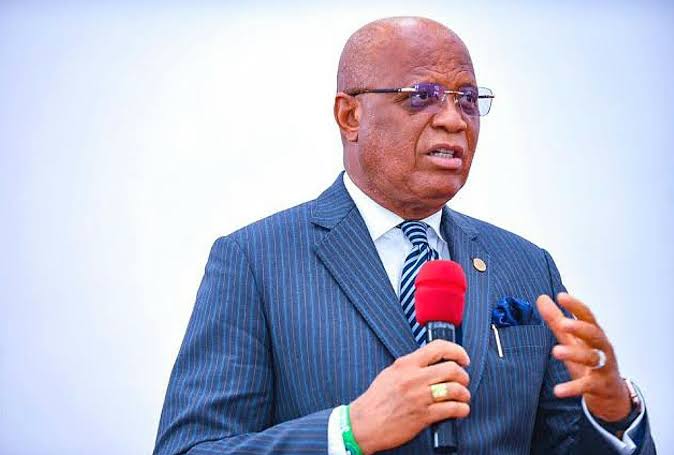Governor of Akwa Ibom State Umo Eno has ordered the Uyo Capital City Development Authority (UCCDA) to demolish all illegal structures obstructing natural waterways.
This followed the Nigeria Meteorological Agency (NiMet) and the Federal Ministry of Agriculture listing 31 states, including Akwa Ibom, as heavily impacted by flooding as the rainy season sets in.
The governor gave the marching orders while addressing a cross-section of politicians, Church leaders, and other stakeholders during the June edition of the Government House monthly prayer service, held at the Latter House Chapel, Government House, Uyo, the state capital, at the weekend.
Eno said Akwa Ibom had been listed as one of the flood-prone states according to this year’s predictions by the NiMet, hence the need for proactive measures to avert any flood disaster.
NiMET had listed 148 local government areas in 31 states, including Akwa Ibom, at risk of severe flooding from April to November 2024.
He emphasised that rather than allow a few buildings to cause flooding that could submerge the entire community or area the government would not hesitate to pull down structures built illegally on waterways.
Therefore, he directed the leadership of UCCDA to proceed with demolishing such buildings in the Uyo metropolis to avoid flooding in the state.
Speaking on the one project per local government initiative, Governor Eno appealed to stakeholders to show leadership and be more interested in development plans in their various areas as the initiative enters the second phase across the 31 LGAs.
Governor Eno noted that while his government is committed to doing more in the state, stakeholders must be more involved, especially in ensuring that the projects are executed for the people’s overall interest.
Beyond infrastructure development, Governor Eno said the idea behind the one-project-per-LGA initiative was to create jobs and empower the youth. He expressed optimism that the few youths saddled with the contracts should do well to engage other youths in executing the project, thereby expanding the scope of the youth’s development and empowerment.
He maintained that while the government has given the benefiting areas a free hand to choose projects and locations, the stakeholders should equally ensure unity of purpose, collaboration, and spread across different wards and units.




